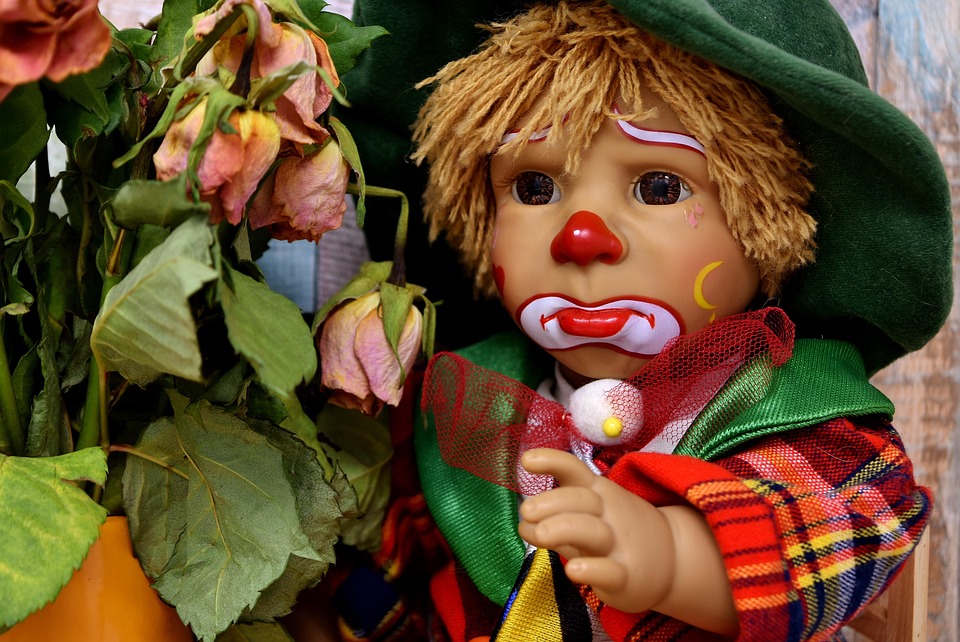Chosen by Davinci.Times: "BEHAVIORAL PSYCHOLOGY TECHNIQUES: Modeling" by @mcassani
We present you the post of @mcassani entitled TECNICHE DI PSICOLOGIA COMPORTAMENTALE: Il Modellamento awarded by the DaVinci.Times team as the best of the week.
The translation of the post was made by @aditili and has been pre-checked by the @davinci.times team.
BEHAVIORAL PSYCHOLOGY TECHNIQUES: Modeling

Imagine CC0 Creative Commons - Source
The canadian psychologist Albert Bandura, worked on the Social Learning Theory and coined the term Modeling as the way to learn by observing and then imitating the behaviour of others.
With this theory he explains how the human learning works, especially how children learn in social environments through observing an adult model.
He demonstrates his theory trought series of experiments, the most famous is known as the Bobo doll experiment. It demonstrated how children learn aggression: trought imitation.

The experiment was structured as follows:
A group of children watched an adult beating the bobo doll.
Another group of children watched an adult sitting silently next to the bobo doll.
In the third scenario, the children were into a playroom with a number of different activities and games, among which there was bobo doll too.
8 out of 10 children who beat him, were the ones who had seen an adult do it previously.
The results of the experiment prove the tendency to imitate models, and this is especially true for children, who have not yet acquired the ability to understand the difference between right or wrong behavior.
Decisive Condition on Modeling Process
- characteristics of the model (emotional bonds or status quo)
- characteristics of the observer (personality typologies and / or cognitive condition)
- The consequences of the interaction between the behavior of the model and the behavior of the observer during the imitative act
When we have positive reinforcements, the observer will continue to demonstrate the behavior acquired through the modeling, otherwise the behavior will be inhibited.

Application of observational learning
We discourse about observational learning when the child acquire behavior through four elements:
Attention:
not just visual attention, but when all the abilities, in its entirety, are oriented to the situation that's happening.
Retention:
the processed information must be memorized through images or words
Production:
comparison between skills already possessed and observed behaviors
Motivation:
to implement a new behavior the incentive to carry it out have to be appropriate.
Vicarious Reinfoircement
Vicarious learning is not a passive process but rather a complex cognitive process that could give results even belatedly.
As for the learning process, reinforcement too can also be vicarious, that means that if one observes the model receiving a reward, the probability of imitating the model grows.
Bandura's Experiment
Bandura used a few minute's film in which an adult implemented aggressive behavior towards a doll through verbal expressions such as:
Stay down
Don't move
and three video endings:
another adult enters acclaiming the model and offering him candies;
another adult enters and scolds the model with a physical act;
the movie without any implementation, just end;
Once the video finished the children were left alone and observed while playing in the room (spontaneous execution).
Later Bandura, using reinforcements, asked them what behaviors they remembered (acquisition).
The results show that vicarious reinforcement (positive or negative) has influenced spontaneous aggressive attitudes (from children against toys).
To get the point lead a way, doesn't consist just in being a good model, but in offering an interpretation of a behavior offering vicarious reinforcement too.
These techniques, therefore, can help parents gain awareness about the aggressive behavior of their children, which in reality can be provoked by their own attitudes, examples and reinforcements.
Bibliography
• La conduzione della classe: tecniche comportamentali ( Meazzini 1978)
• Zimmerman, B. J., & Schunk, D. H. (Eds.) (2003). Educational psychology: A century of contributions. Mahwah, NJ, US:
Erlbaum.
• Bandura, A. (1977), Social Learning Theory, Prentice Hall, Englewood Cliffs, NJ.
• Bandura, A. (1986), Social Foundations of Thought and Action, Prentice Hall, Englewood Cliffs, NJ.

Immagine CC0 Creative Commons, si ringrazia @mrazura per il logo ITASTEM.
CLICK HERE AND VOTE FOR DAVINCI.WITNESS
Please note that for organizational reasons it is necessary to use the "steemstem" and "davinci-times" tags to be voted.
@aboutcoolscience - @farmacistasmz - @spaghettiscience
Thank you so much for mentioning me! I'm proud to be part of this project. Your great work makes me engaged to grow and improve myself.
Congratulations @davinci.polyglot! You have completed some achievement on Steemit and have been rewarded with new badge(s) :
Click on any badge to view your own Board of Honor on SteemitBoard.
To support your work, I also upvoted your post!
For more information about SteemitBoard, click here
If you no longer want to receive notifications, reply to this comment with the word
STOPBeing A SteemStem Member
Congratulations @davinci.polyglot! You have completed some achievement on Steemit and have been rewarded with new badge(s) :
Click on any badge to view your own Board of Honor on SteemitBoard.
For more information about SteemitBoard, click here
If you no longer want to receive notifications, reply to this comment with the word
STOPDo not miss the last announcement from @steemitboard!